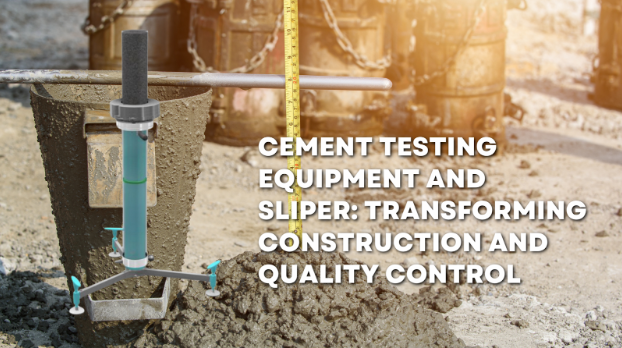
Cement testing and concrete evaluation are essential in ensuring structural integrity and efficiency in construction projects. Whether in a laboratory or on-site, reliable tools for testing help engineers and researchers maintain high standards while streamlining processes. With advancements in technology, testing equipment now offers greater precision, usability, and value.
Cement Testing Equipment provides laboratories with the tools necessary to evaluate material properties accurately. Innovations such as SLIPER further enhance testing capabilities, making construction materials assessment more efficient and insightful.
Advanced Cement Testing Equipment for Precision and Reliability
Testing cement involves evaluating its properties to ensure it meets international standards like ASTM, ISO, and DIN. Various instruments are used to measure factors such as setting times, compressive strength, and air content. These tests ensure materials are suitable for diverse construction needs, from high-rise buildings to bridges.
Key examples of testing equipment include:
- Compression and Flexural Testing Machines: Essential for determining the strength of cement under stress.
- Blaine Apparatus: Used for measuring the fineness of cement, impacting its performance.
- Automatic Vicat Needle Apparatus: Simplifies testing cement’s setting time with high precision.
- Curing Cabinets and Vibration Jolting Tables: Ensure optimal sample preparation for accurate results.
- Air Entrainment Meters and Calorimeters: Help assess factors like durability and heat of hydration.
These tools are designed to enhance laboratory efficiency, reduce errors, and deliver consistent results. Competitively priced and built to last, they provide excellent long-term value for cement testing labs globally.
SLIPER: Redefining Pumpability Testing for Fresh Concrete
One of the biggest challenges in construction is ensuring the pumpability of fresh concrete. Efficient pumpability reduces delays and waste, optimizing overall project timelines. The SLIPER, or Sliding Pipe Rheometer, is an innovative instrument tailored for this purpose.
SLIPER uses a piston-based mechanism to evaluate pumpability. A vertical tube filled with fresh concrete is moved with the help of weights, while sensors measure pressure and speed. This setup provides real-time insights into the mixture’s performance, allowing engineers to make accurate predictions about its behavior in pumps and pipes.
Key Features of SLIPER
- Portable and Compact: Ideal for both laboratory and on-site testing.
- Battery-Powered: Ensures operation independent of mains power.
- Wireless Functionality: Enables seamless data transfer and immediate analysis.
- Minimal Sample Volume: Reduces material usage without compromising accuracy.
- Instant Results: Displays data on smartphones in p-Q diagrams for easy interpretation.
- Data Export: Measurement results can be exported as Excel files or PDF reports for documentation.
SLIPER provides valuable insights not only for quality control but also for product development, ensuring materials meet performance and durability expectations.
How SLIPER Benefits Construction Projects
SLIPER’s ability to predict pressure losses and evaluate pumpability makes it a game-changer for construction. By enabling precise comparisons of different mixtures, the instrument supports better decision-making in material selection.
Its portability allows users to perform tests on construction sites, ensuring materials meet specifications before use. Wireless data transfer and smartphone compatibility streamline the process, providing instant feedback.
Engineers and researchers can also use SLIPER for forecasting, aiding in the efficient design of construction projects. Its economical operation and low material requirements further enhance its practicality for widespread use.
Conclusion
Modern construction demands precise and efficient testing tools to ensure the highest quality standards. Innovations in cement testing equipment and instruments like SLIPER are transforming how materials are evaluated and used. From labs to construction sites, these tools empower professionals to achieve accurate results while optimizing processes.
To explore advanced solutions for cement and concrete testing, we recommend visiting Qualitest and discovering their range of innovative technologies tailored to meet your needs.